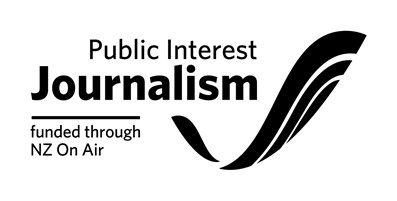The U.S. Food and Drug Administration has made a historic ruling. From mid-October, millions of Americans will be able to purchase hearing aids over the counter at pharmacies and stores throughout the States. There will be no need for a medical exam, prescription, or fitting adjustment by an audiologist. The move is expected to improve access to hearing aids and lower costs for Americans with mild to moderate hearing impairment.
So, should New Zealand follow in the footsteps of the US?
NZ Consumer Investigative writer, Rebecca Styles, reckons it’s a good idea.
“Consumer NZ would welcome any moves which could make hearing assistance more affordable for consumers. The potential for more choice and cheaper options would be great [for] New Zealanders, as options are currently limited.”
In New Zealand, prices for hearing aids start at about $450. A top-of-the-line model can cost more than $8000. Citizens and permanent residents 16 years and over are eligible for a subsidy of $511.11 (per aid). You can apply for this subsidy every six years and purchase new aids.
“Consumer NZ encourages consumers to ensure they know their rights when purchasing hearing aids and to be mindful they may not need the most expensive model available. Stores selling hearing aids must adhere to the Consumer Guarantees Act.”
The current process in NZ is convoluted and inequitable - hearing tests, appointments with audiologists, and fitting fees are all part of the process. Funding from the Ministry of Health (MoH) is available to those who meet certain criteria, but many of the 800,000 who experience hearing loss in NZ do not qualify. They will need to access the $511 subsidy provided by MoH (even this can only be done with the support of a registered Audiologist). For the unemployed who do meet the criteria for MoH funding, Work and Income only offers $1000 loans towards hearing aids, to be repaid following benefit payments.
Providing more affordable hearing aids directly to customers is the practical solution. When asked, Chemist Warehouse said they would consider stocking hearing aids in store, should it become legal here.
Deaf Aotearoa’s reaction is mixed.
“On the one hand, it is a good idea to bring the cost of hearing aids down overall and make them accessible for more people. On the other hand, there is likely to be reduced level of service meaning that people may not get the best hearing aid for their situation / level of hearing loss. This could be more detrimental than not having a hearing aid at all.
If it is introduced here in NZ it will be important to market it correctly. An over the counter system will not work for all Deaf people and people with a higher range of hearing losses. Therefore it mustn’t be marketed as a “fix” for all Deaf / hard of hearing people.”
But not everyone believes over-the-counter sales are a good idea.
Hearing New Zealand President, Dr Lisa Seerup said …
“Over-the-counter hearing aids are not a solution for New Zealand and we do not think that it would greatly affect the uptake of hearing aid sales. We find that even in fully funded countries such as England and the Nordics, 80% of people who clinically need hearing aids do not wear them. So it is not a cost issue. It is a mindset issue. That being said, perhaps an over-the-counter model would change that mindset. I am sceptical.”
Hearing NZ is also worried about safety.
“One big concern is ear health issues such as sudden hearing losses, ear infections, auditory processing disorder and acoustic neuromas that should be picked up at an appointment, will be missed.
It is also important to point out that hearing aids are complex. You are sadly mistaken if you think you can insert one in your ear, switch it on and suddenly enjoy a world of sound.
Over the counter for many elderly is daunting given the level of technology and it is the user group who are most in need of services.
Another concern is that people will not get the training that they need to be able to insert them correctly. The base model of hearing aids has 180,000,000,000 changes that can be made. If you are asked to program your hearing aid, you certainly are going to need a course. An incorrectly fit hearing aid is not significantly better than no hearing aid.“
Hearing NZ believes over-the-counter sales are fraught and, if we want to do more to help the 800,000 hearing impaired Kiwis we would be better off changing the funding model from a subsidy to a voucher.
“The current state of technology allows for `essential’ hearing aids to meet the needs of 90% of all individuals. If the Government used its purchasing power, they could get hearing aids for the cost of the subsidy. That would make it cost-neutral to the Government, more accessible to the population, and still allow for professional oversight of the process. It would be a more user pay situation but would change the focus of hearing into care and not products. Audiologists would not have to act as salespeople. In NZ "free" is a very big carrot.”
According to the 2017 report commissioned by the National Foundation for Deaf and Hard of Hearing (Listen Hear! New Zealand: Social and Economic Costs of Hearing Loss) the cost to our health system of hearing loss is $131.8m and productivity losses at $552.4m. The economic argument to improve services to people with hearing impairments is strong and will be a key factor in any future conversations around hearing aid access the NZ Government may have.
Whether NZ follows the U.S FDA ruling in allowing over the counter sales of hearing aids remains to be seen. Until then, over 800,000 New Zealanders will undoubtedly follow the situation with interest, as Americans with hearing loss are empowered from mid October to access more affordable, direct to consumer hearing aids.
KEY FACTS
- Free hearing tests are available at Life Unlimited in NZ
- Hearing aids can be provided for free in NZ to preschool, primary and secondary students.
- Modern hearing aids can utilise Bluetooth technology and connect up with your smartphone.
- Waterproof hearing aids do exist. Empowering the user to shower and swim whilst still being able to hear. Produced by Audeo Life.
- Sleeping with your hearing aids in is not recommended by audiologists. The ears and brain need a break from time to time.
- Alexander Graham Bell, inventor of the telephone, paved the way for the invention of the hearing aid. He developed the audiometer, which is still used to test hearing today.




